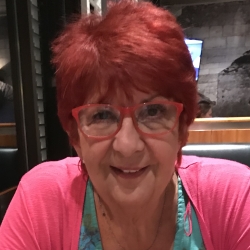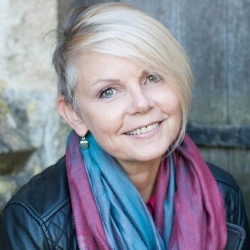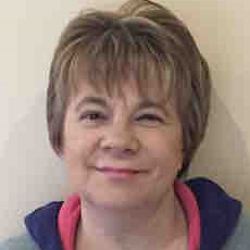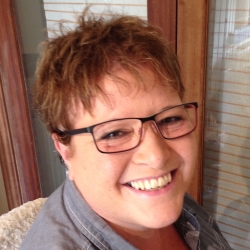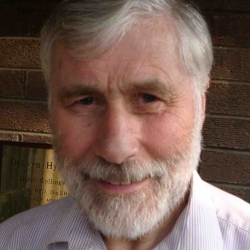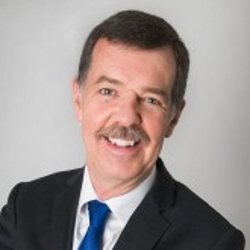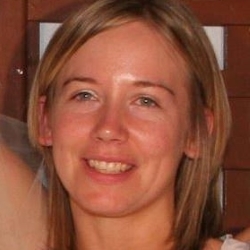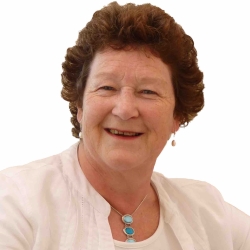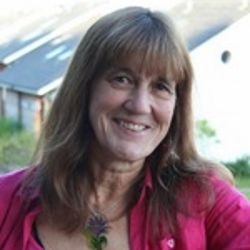Loading
Read MoreThe 7 Stages of Recovery During a Divorce – Sue Atkins
Loading
Read MoreDeveloping Resilience in Children & Young People – Kevin McGeever
Loading
Read MorePorn and Teenagers – Stephanie Palin
Loading
Read MoreCounselling in Universities: What Has Changed? – Neelam Zahid
Loading
Read MoreDon’t Forget the Child – Mel Riley
Loading
Read MoreThe Impact of the Online World on Developing Children: Research Based Evidence – Catherine Knibbs
Loading
Read MoreCounselling Children and Young People: Myth Busting (Part 2) – Sue Lewis
Loading
Read MoreBringing the Body into Our Practice – Jane Evans
Loading
Read MoreWorking Online Therapeutically: Key Skills and Practicalities – Jane Evans
Loading
Read MorePositive Transitions – Glenn Liddall & Miren Ochoa
Loading
Read MoreDeveloping ETHOS: A Fully-funded, Randomised Controlled Trial of School-based Humanistic Counselling – Mick Cooper
Loading
Read MoreWorking Therapeutically With Unaccompanied Asylum-Seeking, Trafficked, and Refugee Young People – Karen Treisman
Loading
Read MoreWorking with Children & Young People 2015
Loading
Read MoreWorking with Children & Young People 2013
Loading
Read MoreWorking with Anxiety
Loading
Read MoreWorking with Addictions & Recovery 2013
Loading
Read MoreAdoption and the Needs of Adoptive and Biological Parents: The Value of HSF – Marie Elizabeth Kruger
Loading
Read MoreKids Who Don’t Do Therapy – Mel Riley
Loading
Read MoreSuicide Ideation in Cyberspace – Online Counselling with CYP – Jan Stiff & Sally Evans
Loading
Read MoreBeing Seriously Playful – René Veugelers
Loading
Read MoreUsing Therapy Skills Outside the Therapy Room – Sarie Taylor, Sue Cleaver, & Jacci Jones
Loading
Read MoreWorking Online With Young People Affected by Domestic and Sexual Abuse – Joanna Sharpen
Loading
Read MoreWorking with Children and Young People Who Express Suicidal Feelings – Sue Lewis
Loading
Read MoreHuman Social Functioning in Rural Practice – Bruce Llewellyn
Loading
Read MoreHypnotherapy and the Heimler Method – David Collingwood-Bell
In this event we will discuss:
How John Heimler influenced my becoming a hypnotherapist;
How the key features of HSF fit so well into the pratice of hypnotherapy; and
The type of client and condition for which the Heimler Scale is particularly useful.
When There’s Nobody There, Rage and Shame will Keep you Company – Sue Parker Hall
Pierre Janet’s simple definition of trauma is ‘there was nobody there.’
In this presentation I will:
Define trauma, rage, & shame, use a case study to offer my understanding of how trauma, rage, & shame are related and show how a therapeutic relationship relationship transforms trauma, rage, & shame.
Read MoreTrauma Resilience: A Personal Perspective – Martin Weaver
Working with clients who have faced trauma and seeing them recover and grow is a satisfying and rewarding experience. And yet, as the therapist, what happens when we are involved in trauma?
John Wilson talks to psychotherapist Martin Weaver about his personal journey through childhood bereavement, the age of AIDS/HIV, family death, and now cancer. They explore how we can and perhaps should make the best use of our skills and experiences as therapists to ensure our own resilience through life’s major and minor traumas. Participants will be encouraged to ask their own questions and make their own observations during the conversation.
Read MoreNorthern Ireland Conflict, Trauma, and Mental Health – Kristine Abercrombie
I would love to share my own personal experience of growing up in Northern Ireland during ‘the troubles’, leaving just as the peace process began, and returning four years ago as a clinical psychologist to work with people in my community affected by the trauma of this period. The conflict in Northern Ireland, although steeped in much deeper history, started in the late 1960s, continuing until the 1990s, with dissident republican and loyalist groups continuing to attempt to upset the peace which has been obtained.
Read MoreChildhood Trauma, Brain Development and Life Outcomes – Catherine Knibbs
This interview will discuss the neurobiological systems that regulate the body and how this affects children in traumatic events. The talk will look at the stages of development, how these can be affected, and how we as therapists working with clients or parents can relieve, facilitate change, and psycho-educate around these issues.
Read MoreSupervision in Family Nurse Partnership – Lindsay Andrews
Loading
Read MoreTwenty Minutes that Could Save Weeks of Counselling – Elizabeth S. Jones
When coming to counselling, a client naturally focuses on their issue – presenting problem which often has become magnified for them. With Human Social Functioning, whilst the client’s need and focus are respected, the use of the HSSF (the questionnaire), assists both client and counsellor to see the bigger picture: where the client is functioning well in addition to the immediate difficulties that have brought the client to seek help.
Read MoreDancing with Rainbows: Throwing Perspective on a Person-centred Partnering Trans-identified and Trans-historied People – Tina Livingstone
Interest in sexual identity, sexual practices, and the transitioning of relationship has thus far focussed more on trans identified and trans-historied people themselves than their partners (Nemoto et al (1999); Docter and Fleming (2001); Smith et al (2002); Cuypere et al (2005); Hines (2006).
However, as long as being Trans’ remains socially stigmatised, those who engage in relationships with them frequently find themselves stigmatised by association – wherever their own sexual identity and orientation reside. This brings a unique layer of struggles for partners, beyond any issues within the relationship itself, including the silencing of celebration.
Read MoreDemedicalising Diversity: Celebrating, Not Pathologising, People With Different Lives – Pete Sanders
Pete Sanders’ half of this shared keynote will ask whether we can allow people to live lives very different from our own without making their lives and experiences into a diagnostic category? Is distress an illness or a natural (albeit sometimes terrifying) reaction to bad things happening in life? And can some people live happy fulfilled lives living with experiences that disturb and distress the rest of society?
In the world of mental health activism, we find Mad Matters, Mad Studies, and Mad Pride – movements following in the wake of Hearing Voices Network and the Paranoia Network. They ask the question: ‘Is the struggle to demedicalise diversity in experiencing a civil rights struggle?’ Pete Sanders says ‘yes’ and invites you to join in.
Read MoreCritical Race Theory, Reflexivity, and the Therapeutic Practitioner – Martin Glynn
Diversity includes all aspects of an individual’s intersectional identity; age, race, class, gender, sexuality, etc. Practitioners should therefore be encouraged to be cognizant of issues related to all of these dimensions of culture. Similarly, engaging diverse clients involves a continuous process of reflection and reflexivity.
‘Reflexivity’ involves examining one’s ‘conceptual baggage’; ‘assumptions’; and ‘preconceptions’, and how these affect professional decisions.
Practitioners must therefore reveal their total interaction with diverse communities by exposing their subjective experiences, both the personal and the political, to reduce the expression of unconscious bias.
Read MoreLife Rolls On: Adapting to Life After a Spinal Injury – Trev Baker
Trev will tell his story of the day that changed his life and the time spent in hospital. How getting involved with a charity called Back up enabled him to ski again and to experience sailing and quad biking which gave him confidence to pursue studies in sports coaching. Trev will talk about getting involved with a sports club called the SAND club which stands for see the ability not the disability and activities this has led to and working with younger adults with physical and behavioural issues in sport.
Read MoreThe Being of the White Therapist – Sheila Haugh & Colin Lago
In this presentation we will offer some reflection and ideas on this under explored arena of white therapist identity. We will discuss the notion of power and the concept of white as a norm. It is our hope to create an environment where we can all reflect on how the being of a white therapist can impact on us both personally and professionally.
Our vision for the structure of this keynote is to combine presentation for stimulus with an opportunity for reflection and thoughtfulness. We would like this keynote to provoke critical thought toward the systemic and personal implications of the being of the white therapist.
Read MoreReflections on International Supervision Week – Joan Wilmot and Robin Shohet
Friday 17th July is the last day of International Supervision Week. In this hour we will review why we at Centre for Supervision and Team Development and onlinevents combined to make it a world wide event, what we have done and plans for it to be repeated next year.
Read MoreSupervising Counsellors Working with Children and Young People – Sue Lewis
Sue has extensive experience supervising counsellors working with children and young people. She is passionate about the need for quality supervision in this field. Although rewarding, it is particularly challenging: supporting practitioners to work effectively with their clients whilst staying mindful of safeguarding responsibilities and managing relationships with parents, schools, and other agencies.
Sue is looking forward to sharing her own experience of this work and invites you to share your experience, fears, and hopes in offering and receiving this kind of supervision.
Read MoreSupervision: It’s Not Just for Psychotherapists and Counsellors – Alex Stewart
I want to look at how the therapeutic tool box we all develop over time can be applied in the everyday life and place we inhabit. I believe that these tools can be a huge power in political change in the way we live together, how we view difference and actually communicate as people.
I am aware as I write this how even the act of presenting these words can be misinterpreted and for this reason want to be able to encourage an open forum during the discussion online.
Read More


